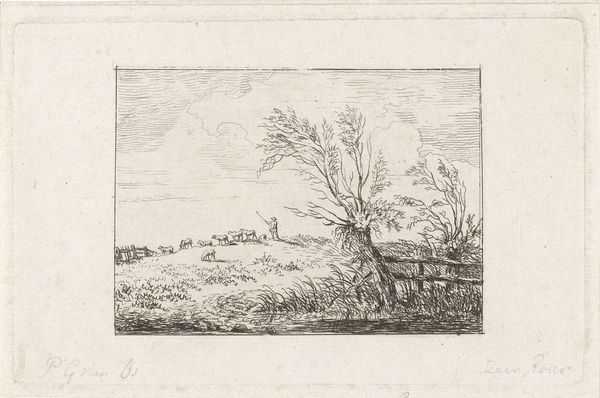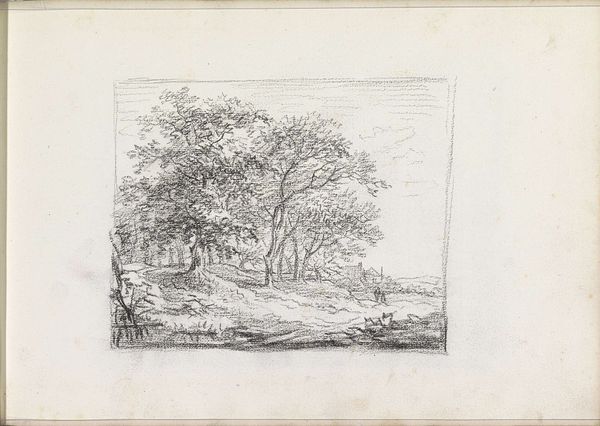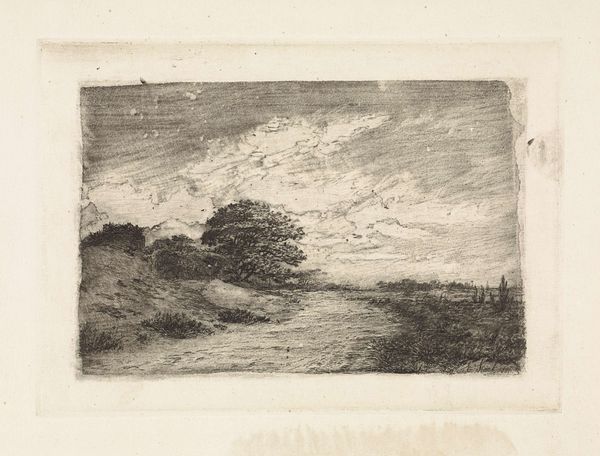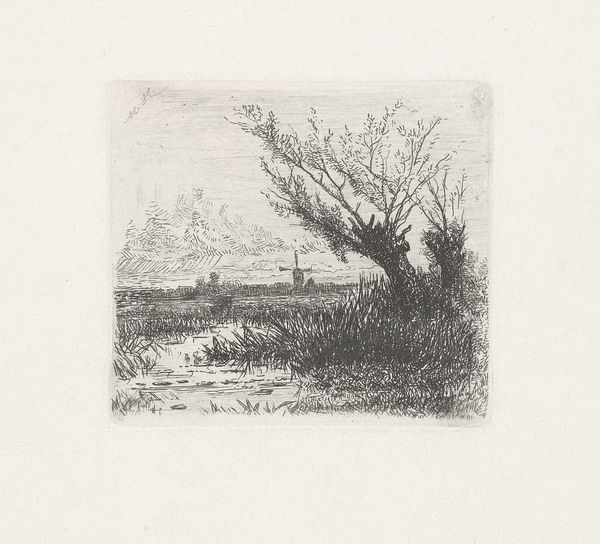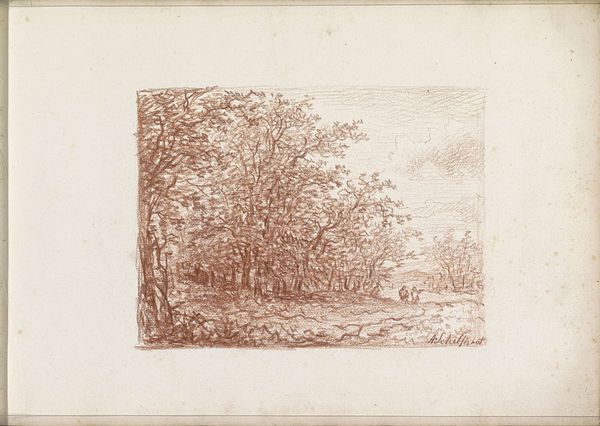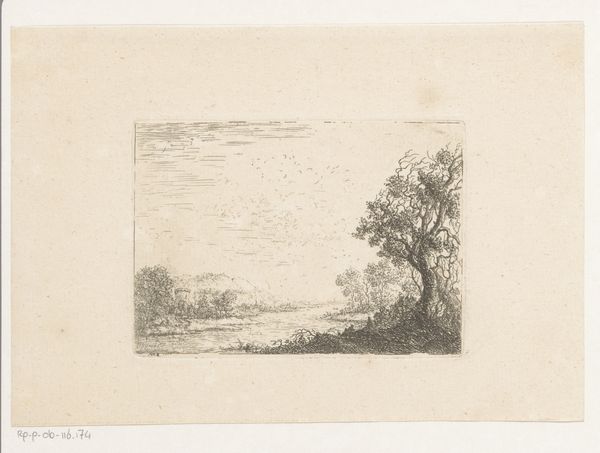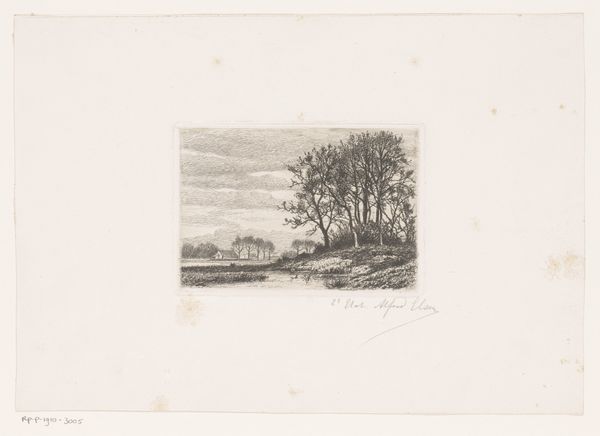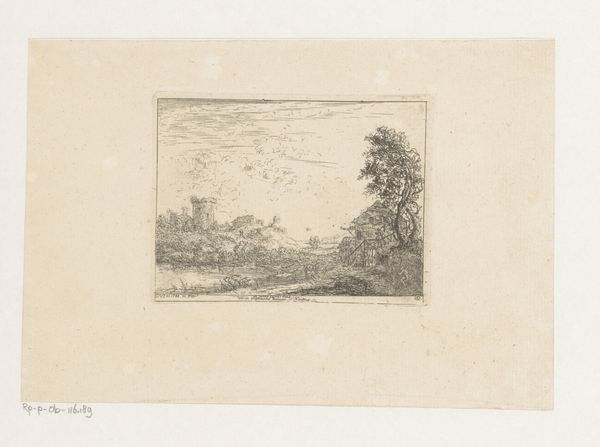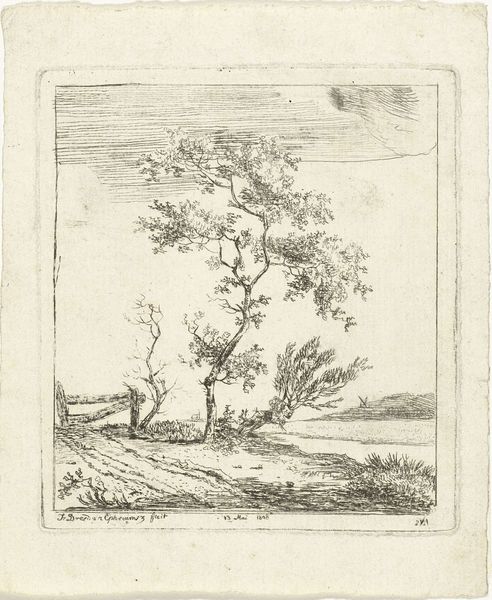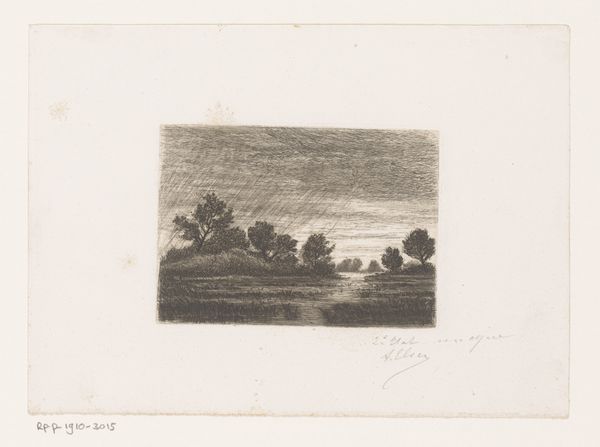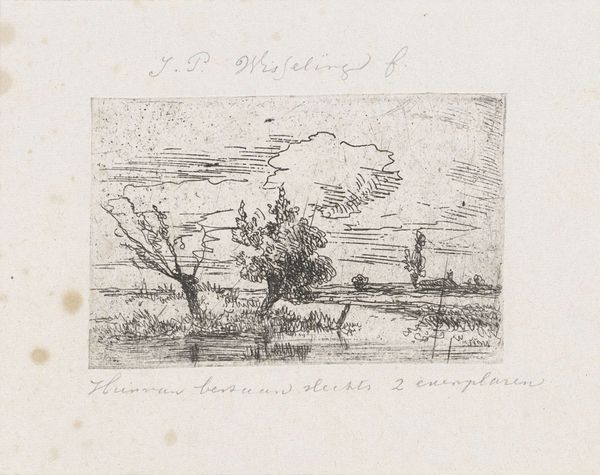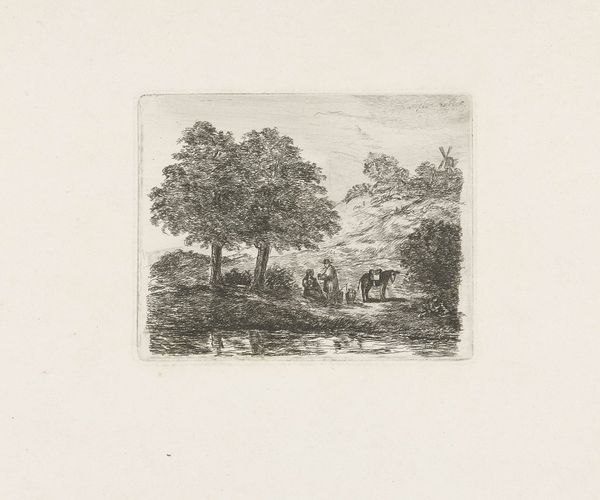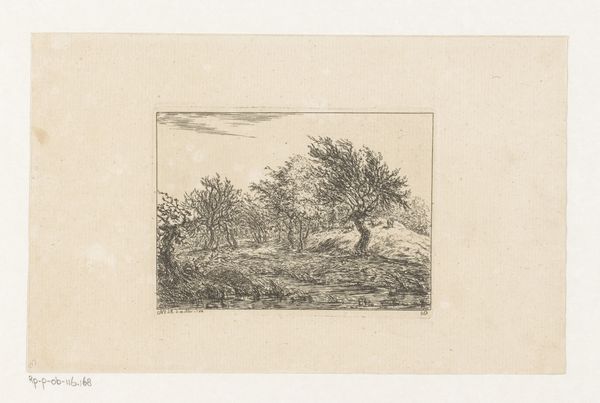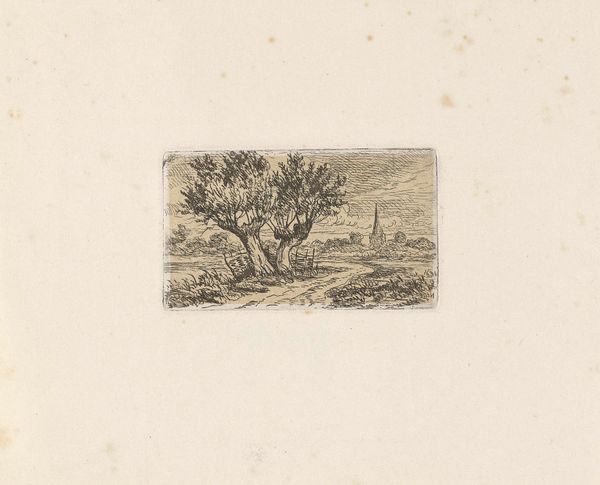
drawing, etching, ink
#
drawing
#
light pencil work
#
quirky sketch
#
etching
#
old engraving style
#
sketch book
#
landscape
#
personal sketchbook
#
ink
#
sketchwork
#
romanticism
#
pen-ink sketch
#
sketchbook drawing
#
sketchbook art
#
realism
#
initial sketch
Dimensions: height 56 mm, width 63 mm
Copyright: Rijks Museum: Open Domain
Curator: Simon Andreas Krausz's "Landschap met huizen en bomen," dating approximately from 1770 to 1825, employs etching and ink to capture a fleeting moment in time. What’s your immediate reaction to it? Editor: It feels… windswept. Almost like a half-remembered dream. The scratching lines create movement, like leaves rustling and clouds hurrying across the sky. A simple kind of loneliness pervades. Curator: That’s interesting. I see it more as a study in tonal contrasts, using line weight and density to delineate form. The composition, though seemingly simple, showcases a keen understanding of spatial relationships and atmospheric perspective. Notice how the houses are just a darker shade in the back. Editor: Spatial relationships aside, the way he renders those trees – wispy, almost frantic – makes them appear emotionally charged. Perhaps he’s reflecting inner turbulence onto the external world. You know, art as catharsis? I'm struck by the feeling, like the edge of the world. Curator: Catharsis is plausible. But consider how the objective observation of nature was a dominant theme in art from that period. Artists like Krausz were striving for an objective rendering, meticulously recording observed detail, even in seemingly unremarkable locales. It speaks of early Realism. Editor: Oh, I get that he was trying to capture what he saw. I just feel there's something beyond mere observation, the feeling is more about memory than presence. This work vibrates with a sense of the past, both idyllic and slightly unsettling, as if it's only a vague reminiscence from Krausz himself. The horizon feels so vast and cold. Curator: Fair point. It is possible to view this "Landschap met huizen en bomen" as an exemplar of Romanticism's growing emphasis on individual perception and the sublime. And the sketch's overt emotional resonance definitely does play with your idea of artistic "memory". Editor: So perhaps he's actually onto something pretty timeless here, isn't he? Something to be rediscovered later… I appreciate how we each saw very different things at the start. It almost makes me want to grab some paper and ink and try my hand at an outdoor landscape of my own… to see the sublime myself. Curator: Yes, well put. These landscapes often quietly challenge us to remember to look outward, but not at the exclusion of our internal worlds, to appreciate the subtle harmonies. I have learned a lot.
Comments
No comments
Be the first to comment and join the conversation on the ultimate creative platform.
